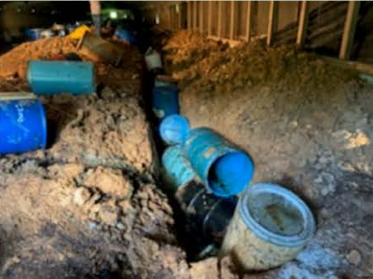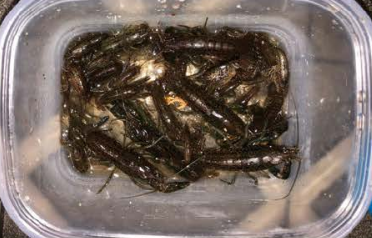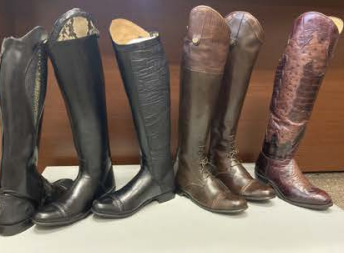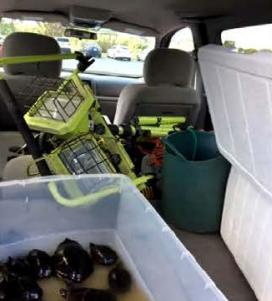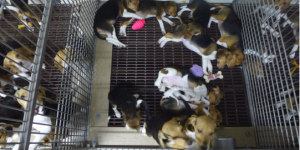Blog Post
Environmental Crimes Bulletin May 2022
In this issue:
- United States v. Amin Ali, No. 4:22-CR00015 (N.D. Ga.), AUSA Christopher Huber
- United States v. Didion Milling Inc., et al., No. 3:22-CR-00055 (W.D. Wisc.), ECS Trial Attorney Charlie Lord, ECS Senior Trial Attorney RJ Powers, and ECS ParalegaI Chloe Harris
- United States v. DEM Technology LLC, et al., No. 3:22-CR-00048 (S.D. Ohio), ECS Senior Trial Attorney Adam Cullman
- United States v. Harvey N. Anthony et al., No. 22-CR-00041 (D. Alaska), AUSAs Steven Skrocki and Seth Brickey
- United States v. Horacio Ortega-Martinez, et al., Nos. 1:22-CR-00130, 00132 (E.D. Calif.), AUSA Christopher Baker
- United States v. Marino Cruz Diaz, et al., No. 1:19-CR-00171 (E.D. Calif.), AUSA Justin Gilio
- United States v. Pro Diesel Inc., No. 1:22-CR-00062; United States v. McDermid Sales & Service, No. 1:22-CR-00065; United States v. Endrizzi Diesel, LLC, No. 1:22-CR-00064 (D. Colo.), AUSA Rebecca S. Weber and SAUSA Linda S. Kato
- United States v. Empire Bulkers Ltd., et al., No. 2:21-CR-00126 (E.D. La.), ECS Senior Litigation Counsel Richard Udell, ECS Senior Trial Attorney Ken Nelson, AUSA G. Dall Kammer, and ECS Paralegal Samantha Goins
- United States v. KirilI Kompaniets, No. 2:22-CR-00066 (E.D. La.), ECS Senior Litigation Counsel Richard Udell, AUSA G. Dall Kammer, and ECS Paralegals Chloe Harris and Samantha Goins
- United States v. Tampa Electric Company, No. 8:22-CR-00165 (M.D. Fla.), ECS Senior Trial Attorney Adam Cullman, AUSA Rachelle DesVaux Bedke, and ECS Law Clerk Nate Borrelli
- United States v. Christopher James Davis, No. 1:22-CR-00060 (S.D. Ala.), ECS Senior Counsel Kris Dighe, AUSA Michael Anderson, SAUSA Jennifer Lewis, and ECS ParalegaI Chloe Harris
- United States v. Kevin Shibilski, No. 3:20-CR-00122 (W.D. Wisc.), AUSA Daniel Graber and RCEC James Cha
- United States v. Oscar Alfredo Castanaza Ortega, No. 1:19-CR-00191 (E.D. Calif.), AUSA Karen Escobar
- United States v. Nicholas Booker, No. 3:22-CR-00054 (W.D. Wisc.), ECS Trial Attorney Charlie Lord, ECS Senior Trial Attorney RJ Powers, and ECS Paralegal Chloe Harris
- United States v. Allison Spaulding, No. 2:22-CR-00060 (S.D. Ohio), ECS Senior Trial Attorney Adam Cullman
- United States Jose A. Der, Jr., No. 1:22 -CR-00014 (W.D.N.Y.), AUSA Aaron Mango
- United States v. Fogging Solutions et al., No. 2:22-CR-00091 (C.D. Calif.), AUSA Mark Williams
- United States v. Ana Yorling Rugama Sanchez, et al., Nos. 1:22-mj-00015, 00017 (W.D.N.C.), AUSA Steven Kaufman
- United States v. Jesse James Freeman, No. 5:20-CR-00377 (E.D.N.C.), ECS Senior Trial Attorneys Banu Rangarajan and Ryan Connors
- United States v. Absolute Seafoods LLC, et al., No. 2:22-CR-00016 (W.D. Wash.), AUSA Seth Wilkinson
- United States v. Paul Gil, No. 3:22-CR-00006 (D. Alaska), AUSA Charisse Arce and NOAA SAUSA Andrea Hattan
- United States v. Wyatt A Travnichek, No. 5:21-CR-40029 (D. Kans.), AUSA Christine Kenney
- United States v. Laura Orellana, et al., No. 20-CR-03054 (S.D. Calif.), ECS Senior Trial Attorney Stephen DaPonte and AUSA Melanie Pierson
- United States v. Kendall D. Kipp, No. 1:21-CR-00046 (S.D. Iowa), AUSA Michael Duffy and Richard Rothrock
- United States v. Nathan Horton, No. 1:20-CR 00429 {N.D. Ga.), AUSA Alex R. Sistla and Samir Kaushal
- United States v. U.S. Dry Cleaning Corp., et al., Nos. 1:21-CR-00131, 134 (D. Hi.), ECS Senior Counsel Kris Dighe, AUSA Gregg Yates, and ECS Paralegal Sam Goins
- United States v. Evridiki Navigation, Inc., et al., No. 1:19-CR-00066 (D. Del.), ECS Senior Litigation Counsel Richard Udell, ECS Senior Trial Attorney Ken Nelson, ECS Trial Attorney Joel LaBissonniere, AUSA Edmund Falgowski, ECS Law Clerk Nate Borrelli and ECS Paralegal Chloe Harris
- United States v. Isabel Betanzaos, et al., Nos. 21-CR-003338, 003353 (S.D. Calif.), ECS Senior Trial Attorney Stephen DaPonte and AUSA Melanie Pierson
United States v. Amin Ali, No. 4:22-CR00015 (N.D. Ga.), AUSA Christopher Huber
On May 16, 2022, prosecutors charged Amin Ali with violating the Resource Conservation and Recovery Act (RCRA), for illegally storing hazardous waste (42 U.S.C. § 6928(d)(2)(A)).
Ali owned and controlled Goldstar Investment Group, LLC (Goldstar). 7 Days Property Management. Inc., and Rock Springs Farming, LLC (Rock Springs). Goldstar purchased a warehouse, formerly owned by a chemical company. Rock Springs owned a farming property, with several old chicken houses.
In August 2021, Ali arranged for more than 100 drums and other containers of chemicals, including many containing hazardous waste, moved from the Goldstar property to the Rock Springs property. Workers left some of the drums in one of the old chicken houses, with others placed in an open trench for burial. Some of the drums leaked and spilled onto the surrounding soil.
Neither Ali. Goldstar. or Rock Springs possessed a RCRA permit to treat. store, transport, or dispose of hazardous waste. Subsequent testing of the drums and soil revealed benzene. lead, and/or chromium.
The U.S. Environmental Protection Agency Criminal Investigation Division conducted the investigation.
United States v. Didion Milling Inc., et al., No. 3:22-CR-00055 (W.D. Wisc.), ECS Trial Attorney Charlie Lord, ECS Senior Trial Attorney RJ Powers, and ECS ParalegaI Chloe Harris.
On May 13, 2022, prosecutors charged a corn milling company, a company vice president. two environmental coordinators, and three supervisors with crimes related to worker safety, fraud, air pollution, and obstruction of justice. Two former company supervisors (Michael Bright and Nicholas Booker) recently pleaded guilty to similar charges (18 U.S.C. § 1349, 1505, 1519, 1001(a)(3); 29 U.S.C. § 666(e)).
Didion Milling, Inc., (DMI) owned and operated a corn mill in Cambria, Wisconsin. Corn dust is combustible and can fuel explosions if exposed to an ignition source and mixed with a sufficient concentration of air. Occupational Safety and Health Act (OSH Act) regulations require grain facilities to develop and implement effective "housekeeping" programs to remove dust accumulations and prevent explosions. Environmental Protection Agency regulations further required DMI to properly operate and maintain baghouses to reduce grain dust emissions. DMl's failure to comply with health. safety, and environmental regulations caused the deaths of five employees following an explosion at the mill on May 31. 2017.
Derrick Clark. company vice president of operations; Shawn Mesner. former food safety superintendent; and Anthony Hess and Joel Niemeyer. both former shift superintendents. conspired to commit fraud by, among other things, falsifying the cleaning logbook to conceal the fact that DMI failed to follow its written cleaning policy. This enabled the company to maintain its food safety certification and continue to sell its products to food and beverage manufacturers.
Prosecutors also charged DMI environmental coordinators James Lenz and Joseph Winch (along with Clark. Hess. Mesner. and Niemeyer) with conspiring to conceal unsafe conditions from auditors and governmental agencies. This included falsifying cleaning logs and baghouse monitoring logs, submitting false environmental compliance certifications. and giving false testimony to government officials.
Hess. Clark. and DMI obstructed justice by providing false and misleading testimony to the Occupational Safety and Health Administration following the May 2017 explosion concerning their knowledge of combustible dust hazards at DMI.
The U.S. Environmental Protection Agency CriminaI Investigation Division conducted the investigation.
United States v. DEM Technology LLC, et al., No. 3:22-CR-00048 (S.D. Ohio), ECS Senior Trial Attorney Adam Cullman.
On May 11. 2022. prosecutors filed an information charging DEM Technology, LLC. (DEM) and the company's vice president, Evan Morgan. with violating the Federal Insecticide, Fungicide. and Rodenticide Act (FIFRA) (7 U.S.C. § 136j(a)(1)(B)).
DEM produced a variety of products. including "SaniGuard," a surface sanitizer spray registered with the Environmental Protection Agency (EPA). DEM also made a product called SaniGuard Total Release Fogger that it marketed in 2004 as a total room disinfectant using a continuous. fogging spray. The SaniGuard Total Release Fogger product was not registered with the EPA. In its marketing materials. DEM claimed that the SaniGuard Fogger could sanitize an entire room. including killing viruses and bacteria.
In 2004 and 2005. the EPA sent letters to DEM informing the company it failed to supply efficacy data to support SaniGuard's use as a fogger. Between 2004 and 2012. DEM acknowledged receiving this correspondence directing the company to remove any "fogging language" from the SaniGuard label.
In July 2015, DEM and the EPA signed a Consent Agreement that ordered DEM to pay a $1,500 civil penalty for illegally selling and distributing SaniGuard Fogger. Despite the Consent Order. DEM and Morgan continued to produce. distribute. and sell SaniGuard Fogger from 2015 up through 2018.
The U.S. Environmental Protection Agency Criminal Investigation Division, the Oho Bureau of Criminal Investigation, and the Ohio Attorney General's Office conducted the investigation.
United States v. Harvey N. Anthony et al., No. 22-CR-00041 (D. Alaska), AUSAs Steven Skrocki and Seth Brickey.
On May 6, 2022, prosecutors charged a hunter and his company with violating the Lacey Act for illegally killing black bears between 2011 and 2018 in the Kenai Fjords National Park (16 U.S.C. §§ 3372(d)(2) and 3373(d)(3)(B)).
Harvey N. Anthony, a resident of Maine, hosts a hunting television show called "Bear Whisperer," which is produced by Nature Productions, Inc., a company incorporated in Maine. The defendants used footage from the 2015 and 2017 hunting trips in episodes of the "Bear Whisperer," including footage of two black bear kills within the Park.
In May 2017, with the help of an Alaska resident {Individual A). the defendants killed a black bear within the Park's borders. They then transported it from where they killed it in the Park. to Individual A's boat. over to Homer, Alaska.
On May 12, 2017. Anthony filed a false sealing certificate with the State of Alaska claiming he had taken the bear from Berger Bay (where hunting is permitted) instead of the Park, almost 20 miles away. Following taxidermy work in Alaska, Anthony arranged to ship the animal back to Maine.
The National Parks Service and the U.S. Fish and Wildlife Service conducted the investigation.
United States v. Horacio Ortega-Martinez, et al., Nos. 1:22-CR-00130, 00132 (E.D. Calif.), AUSA Christopher Baker.
On May 5, 2022, prosecutors charged Mexican nationals Jorge Calderon-Campos, and Horacio Ortega-Martinez with unlawfully possessing anima Is to use in an anima I fighting venture (7 U.S.C. § 2156(b); 18 U.S.C. § 49(a)).
In February 2022, Calderon-Campos and Ortega-Martinez frequently communicated about illegal cockfighting events, including an event Calderon-Campos attended on February 12, 2022, where 15 roosters fought to win a $5,000 purse. On April 26, 2022, law enforcement agents executed a search warrant at Ortega-Martinez's residence and discovered approximately 250 roosters, "gaffs" (razor-sharp steel blades that are tied to the birds' legs), mitts used to train the birds to fight, and miscellaneous antibiotics and supplements commonly used for breeding and training roosters.
The Homeland Security Investigations, the Drug Enforcement Administration, the Kern County Sheriff's Office, the Kern County High Intensity Drug Trafficking Area, the U.S. Marshals Service, the U.S. Customs and Border Protection, the Bakersfield Police Department. the Kern County Probation Department. the California Department of Corrections and Rehabilitation, the U.S. Secret Service, the U.S. Department of Agriculture Office of Inspector General, and the California Highway Patrol conducted the investigation.
United States v. Marino Cruz Diaz, et al., No. 1:19-CR-00171 (E.D. Calif.), AUSA Justin Gilio.
On May 27. 2022. Marino Cruz Diaz pleaded guilty to manufacturing marijuana (21 U.S.C. § 841). Diaz is scheduled for sentencing on August 19. 2022. Co-defendant David Moreno Florez pleaded guilty to manufacturing marijuana and felon-in-possession of a firearm (21 U.S.C. §§ 841. 924) and is scheduled for sentencing on July 15. 2022.
In August 2019. law enforcement officers located a clandestine marijuana grow site in the Sequoia National Forest. After hiking into the area. they arrested Diaz and Florez. with Florez carrying a loaded. AR15-style rifle. They also found a loaded shotgun nearby. Officers removed and eradicated close to 2,500 marijuana plants.
The U.S. Forest Service conducted the investigation. with assistance from the California Department of Fish and Wildlife. and the Fresno County Sheriff's Office.
United States v. Pro Diesel Inc., No. 1:22-CR-00062; United States v. McDermid Sales & Service, No. 1:22-CR-00065; United States v. Endrizzi Diesel, LLC, No. 1:22-CR-00064 (D. Colo.), AUSA Rebecca S. Weber and SAUSA Linda S. Kato.
On May 26. 2022. McDermid Sales and Service pleaded guilty to conspiring to violate the Clean Air Act (CAA) for altering emissions control systems on Class 8. commercial heavy-duty diesel trucks and semi-trucks (42 U.S.C. § 7413(c)(2)(C)). Pro Diesel. Inc.. and Endrizzi Diesel. LLC.. previously entered similar pleas on April 6th and 7th. 2022.
On June 14. 2022. a court sentenced Pro Diesel to complete a three-year term of probation (to include enacting a compliance plan). pay a $77.500 fine (with $38,750 held in abeyance upon successfully completing probation) and pay $77,500 towards a community service project. The project will fund a training program at a local community college for diesel mechanics. Endrizzi Diesel is scheduled for sentencing on June 29. 2022. and McDermid is set for on August 5. 2022.
The defendants own garages and/or fleets of trucks in three different states: Pro Diesel is located in Des Moines. Iowa: McDermid is located in Oconto Falls. Wisconsin; and Endrizzi operates out of Bolivar. Missouri. The defendants disabled hardware emission controls (including diesel particulate filters and catalytic converters) on Class 8 heavy duty semi-trucks. To complete the process. they hired a garage located in Colorado that specialized in remotely "tuning," or overriding, the on-board diagnostic (OBD) computer software systems. OBD functions include monitoring hardware emission controls on vehicles to ensure that they are operating properly. As such. OBDs qualify as "monitoring devices" under the CAA. The defendants tampered with monitoring devices by hiring the Colorado garage to tune the OBDs. preventing them from detecting emission control malfunctions. In total. the defendants manipulated the OBDs on 126 vehicles.
The U.S. Environmental Protection Agency Criminal Investigation Division and the Colorado Office of the Attorney General conducted the investigation.
United States v. Empire Bulkers Ltd., et al., No. 2:21-CR-00126 (E.D. La.), ECS Senior Litigation Counsel Richard Udell, ECS Senior Trial Attorney Ken Nelson, AUSA G. Dall Kammer, and ECS Paralegal Samantha Goins.
On May 24, 2022. Empire Bulkers Ltd., (Empire) and Joanna Maritime Limited pleaded guilty to violating the Act to Prevent Pollution from Ships and the Ports and Waterways Safety Act (PWSA) (33 U.S.C. § 1908; 46 U.S.C. § 70036).
Empire operated the MV Joanna. a Marshall Islands-registered bulk carrier. owned by Joanna Maritime. Between October 25. 2020. and March 11, 2021, the companies tampered with oil pollution prevention equipment and falsified the ship's oil record book. The Coast Guard found that the crew bypassed the ship's oily water separator by inserting a piece of metal into the oil content meter. causing it to detect clean water instead of the actual discharges. The defendants falsified the log and sought to obstruct the Coast Guard's inspection.
The defendants also violated the PWSA by failing to immediately report a hazardous situation that affected the safety of the ship and threatened U.S. ports and waters. During the inspection on March 11, 2021, the Coast Guard discovered an active fuel oil leak in the ship's purifier room that resulted from disabling the fuel oil heater pressure relief valves. an essential safety feature designed to prevent catastrophic fires and explosions. Trial against Chief Engineer Warlito Tan is scheduled to begin on September 12, 2022.
The U.S. Coast Guard Criminal Investigations Division conducted the investigation.
United States v. KirilI Kompaniets, No. 2:22-CR-00066 (E.D. La.), ECS Senior Litigation Counsel Richard Udell, AUSA G. Dall Kammer, and ECS Paralegals Chloe Harris and Samantha Goins.
On May 18, 2022. Kirill Kompaniets pleaded guilty to violating the Act to Prevent Pollution from Ships for discharging oily waste overboard and to obstructing justice (33 U.S.C. § 1908(a); 18 U.S.C. § 1505). Kompaniets. the chief engineer of a foreign-flagged vessel, deliberately discharged approximately 10.000 gallons of oil-contaminated bilge water overboard in U.S. waters off the coast of New Orleans in 2021. and attempted to obstruct the Coast Guard's investigation of the spill. A crew member used social media to report the illegal conduct to the Coast Guard.
In March 2021, the ship underwent repairs to correct a problem with discharging clean ballast water when a valve burst, flooding the engine room. After bringing the leak under control very late on the evening of March 13, 2021, Kompaniets and a subordinate dumped the oil-contaminated water overboard. The discharge into U.S. waters occurred while the ship was anchored near the South West Passage off the Louisiana coast. Kompaniets did not use the oily water separator or the oil content monitor. and failed to record the discharge in the oil record book (ORB).
Kompaniets took several steps to obstruct the Coast Guards' investigation into the illegal discharge, including: (1) making false statements concealing the fact that the engine room flooded and that he illegally discharged oily waste overboard; (2) destroying the computer alarm printouts generated while discharging; (3) directing subordinate crew members to make false statements to the Coast Guard; (4 ) failing to record the discharges in the ORB; (5) directing subordinate engine room employees to delete all evidence from their cell phones in anticipation of the Coast Guard inspection; and (6) preparing a retaliatory document accusing the whistleblower of poor performance as part of an effort to discredit him.
The U.S. Coast Guard conducted the investigation.
United States v. Tampa Electric Company, No. 8:22-CR-00165 (M.D. Fla.), ECS Senior Trial Attorney Adam Cullman, AUSA Rachelle DesVaux Bedke, and ECS Law Clerk Nate Borrelli.
On May 18. 2022. the Tampa Electric Company (TECO) pleaded guilty to willfully violating an Occupational Safety and Health Act (OSH Act) standard and causing the deaths of five workers (29 U.S.C. § 666(e)).
TECO operates a coal-fired power plant. known as Big Bend. outside of Tampa. Florida. The facility consists of four large coal-fired furnaces. Water-filled tanks sit underneath the furnaces to catch and cool the molten "slag" by-product that drips down from the furnace. The slag often reaches 1.000 degrees Fahrenheit.
On June 29, 2017, workers could not remove accumulated slag from the slag tank due to a clog. Rather than shutting down the furnace. TECO contacted a contractor to perform high-pressure water blasting, with the unit still running, to try and clear the slag. TECO failed to brief the workers on the procedures for the water blasting work. Instead. workers started cleaning without taking critical safety-related steps. including lowering the amount of coal entering the furnace. and shutting the unit down after a specified interval had lapsed. As a result. five people perished when slag dislodged, spraying the area with molten slag.
The Federal Bureau of Investigation and the Department of Labor Office of Inspector General conducted the investigation.
United States v. Christopher James Davis, No. 1:22-CR-00060 (S.D. Ala.), ECS Senior Counsel Kris Dighe, AUSA Michael Anderson, SAUSA Jennifer Lewis, and ECS ParalegaI Chloe Harris.
On May 16. 2022. Christopher James Davis pleaded guilty to falsifying and using a document to obtain approval from the U.S. Environmental Protection Agency (EPA) to manufacture a pesticide (18 U.S.C. § 1001(a)(3)). Sentencing is scheduled for November 16. 2022.
Davis worked as a product manager for a pesticide manufacturer that produced a pesticide in Alabama and exported it to Canada. After the manufacturer made changes to the formulation. it registered those changes as required with the EPA. but failed to do the same with Canadian pesticide authorities. Canadian pesticide authorities cancelled the pesticide for other reasons and phased it out. Davis' employer sought approval from the EPA to return the remaining pesticide to Alabama for reformulation into another product.
The pesticide manufacturer was not approved to distribute or sell the altered formulation of the pesticide in Canada that it was returning to the United States. In May 2019. Davis convinced a former employee to sign her maiden name to a previously unsigned Canadian form with a 2007 date on it. which would have updated the formulation in Canada had it actually been submitted and approved. He then submitted that falsified form to the EPA for the approval his employer sought.
Subsequently. in October 2019. another employee sought information from Canadian pesticide authorities who stated that the 2007 document had neither been submitted nor approved in Canada. That confirmation from Canada was forwarded to Davis. In February 2020. Davis resubmitted the same May 2019 Canadian form dated 2007 with the former employee's maiden name. The EPA approved the application.
The U.S. Environmental Protection Agency Criminal Investigation Division conducted the investigation.
United States v. Kevin Shibilski, No. 3:20-CR-00122 (W.D. Wisc.), AUSA Daniel Graber and RCEC James Cha.
On May 16. 2022. Kevin Shibilski. former owner of 5R Processors. Ltd.. (5R) pleaded guilty to willfully failing to pay payroll taxes to the Internal Revenue Service (26 U.S.C. § 7202). Shibilski is scheduled for sentencing on September 13. 2022.
In March 2013. Shibilski. a former Wisconsin State Senator. purchased 5R. a Wisconsin-based corporation involved in recycling electronics and other equipment. 5R accepted used electronics such as computers and televisions in exchange for a fee. representing that it would lawfully recycle or dispose of the equipment. Instead. between 2011 and 2016. the company illegally stored crushed cathode ray tube glass (a hazardous waste generated when TVs and computers are smashed). inside warehouses located in Wisconsin and Tennessee.
In June 2014, Shibilski created two additional corporations. Wisconsin Logistics Solutions and Pure Extractions, to take over 5R Processors' trucking, logistics and recycling operations. He transferred 5R's customers, warehouses, equipment. income streams, and most of its employees, to the new corporate entit ies.
Between June 2014 and June 2016, Shibilski willfully failed to pay $197.458 in federal income and FICA taxes owed to the United States on behalf of these new corporations and their employees.
The Wisconsin Department of Natural Resources Bureau of Law Enforcement. the U.S. Environmental Protection Agency Criminal Investigation Division, and the U.S. Department of Treasury Internal Revenue Service Criminal Investigations conducted the investigation
United States v. Oscar Alfredo Castanaza Ortega, No. 1:19-CR-00191 (E.D. Calif.), AUSA Karen Escobar.
On May 13, 2022, Oscar Alfredo Castanaza Ortega pleaded guilty to conspiring to cultivate with intent to distribute close to 3,000 marijuana plants in the Twin Springs area of the Sequoia National Forest (21 U.S.C. §§ 841, 846). Sentencing is scheduled for October 28, 2022.
In August 2019, law enforcement officers apprehended Castanaza on the grow site with a loaded .38 caliber firearm and a box of ammunition. Castanaza stated the owners of the site paid him $100 a day to water and trim the plants.
The marijuana cultivation operation caused significant damage to the land and natural resources. Workers cut down native trees, brush, and other vegetation, dumping large amounts of fertilizers and pesticides around the site. Using a helicopter, law enforcement removed thousands of pounds of trash. irrigation hose, and camping equipment.
The U.S. Forest Service conducted the investigation, with assistance from the California Department of Justice's Campaign Against Marijuana Planting (CAMP), and the Tulare County Sheriffs Office.
United States v. Nicholas Booker, No. 3:22-CR-00054 (W.D. Wisc.), ECS Trial Attorney Charlie Lord, ECS Senior Trial Attorney RJ Powers, and ECS Paralegal Chloe Harris
On May 12, 2022, Nicholas Booker pleaded guilty to making false statements following the investigation of a five-fatality explosion at Didion Milling's Inc. (DMI) corn mill (18 U.S.C. § 1001(a)(3)).
Corn dust combusts and may fuel explosions if exposed to an ignition source and mixed with a sufficient concentration of air.
Occupational Safety and Health Act (OSH Act) regulations require grain facilities to develop and implement effective "housekeeping" programs to remove accumulations of dust and prevent explosions. Environmental Protection Agency (EPA) regulations further required DMI to properly operate and maintain baghouses to reduce grain dust emissions. DMl's failure to comply with health. safety, and environmental regulations caused the deaths of five employees following an explosion at the mill on May 31. 2017.
Booker worked as a shift superintendent at the mill between 2015 and 2017. Booker falsified the mill's cleaning logbook to make it appear that the mill completed dust cleanings as required under company policy. He further stated this was a common practice at the facility. Employees submitted the falsified documents to both the Occupational Safety and Health Administration and EPA.
Under the Clean Air Act, the EPA also required the mill to monitor the "pressure drop" readings on a dozen baghouses every eight hours and take action if the pressure drops below or goes above the range set forth in the permit. The pressure drop is a measure of pressure differential between the incoming "dirty" side of a baghouse and the outgoing "clean" side. Readings that are too low suggest a tear in the baghouse filters that is allowing dirty air to bypass the filter and exit to the environment. Readings that are too high suggests the dust collection system is plugged and not working correctly. Booker falsified the baghouse pressure log to conceal below and above-range readings, stating this, too. was common practice at the facility. Co-defendant Michael Bright, another shift superintendent, entered a similar plea in March 2022.
The U.S. Environmental Protection Agency Criminal Investigation Division conducted the investigation.
United States v. Allison Spaulding, No. 2:22-CR-00060 (S.D. Ohio), ECS Senior Trial Attorney Adam Cullman
On May 11. 2021. Allison Spaulding pleaded guilty to violating the Lacey Act for illegally selling marbled crayfish from her home via eBay (16 U.S.C. §§ 3372(a)(2). 3373(d)(2)).
Marbled crayfish are sought-after in the aquarium trade. but are very difficult to eradicate. Due to their ability to "self-reproduce" or clone themselves. these animals are an especially problematic invasive species.
The Ohio Department of Natural Resources deemed the crayfish as an "injurious aquatic invasive species" in January 2020. making them illegal to possess or sell.
The Ohio Division of Wildlife. and the U.S. Fish and Wildlife Service conducted the investigation.
United States Jose A. Der, Jr., No. 1:22 -CR-00014 (W.D.N.Y.), AUSA Aaron Mango
On May 6, 2022. Jose A. Der. Jr.. pleaded guilty to violating the Lacey Act for trafficking in products made from wildlife. including boots made. in part. from elephant alligator. crocodile. python. monitor lizard. iguana. stingray, shark. and ostrich skins. some of which are endangered species (16 U.S.C. §§ 3372(a)(I). 3373(d)(l)(B)). Sentencing is scheduled for September 8, 2022.
Der. doing business as Der Dau Custom Made Boots & Shoes. created custom equestrian riding boots. Between 2015 and 2020, Der shipped 48 pairs of boots that included exotic wildlife trim to customers in Canada. Der failed to obtain the necessary permits or file appropriate paperwork with any of the required authorities. In total. experts value these custom-made boots at $129,361.
The U.S. Fish and Wildlife Service and Environment Canada Wildlife Enforcement Division conducted the investigation.
United States v. Fogging Solutions et al., No. 2:22-CR-00091 (C.D. Calif.), AUSA Mark Williams.
On May 26. 2022. a court sentenced David Earl Gillies and his company, Fogging Solutions. LLC. dba Mountain Fog, to pay a $10,000 fine. joint and several. The defendants will each complete two-year terms' of probation. and Gillies will pay an additional $11.000 in restitution to the victims who purchased fraudulent COVID "fogging treatments" from the company. Both pleaded guilty to violating the Federal Insecticide, Fungicide, and Rodenticide Act (7 U.S.C. §§ 136j(a)(2)(G),136I(b)(l)(a)).
Mountain Fog is a small company that provided COVID-19 fogging services during the pandemic. Gillies claimed to have a chemistry background and developed a plan to use two chemicals (Alpha and Omega) for the company's fogging services. Alpha and Omega were actually different pesticides/ disinfectants that other companies created and registered with the Environmental Protection Agency (EPA). but neither had been approved to kill COVID-19. Though Gillies claimed that the EPA was in the process of approving these products for use as a COVID disinfectant. the Agency never issued the approval since the products were never tested against the COVID virus. Undercover agents found that Mountain Fog's employees improperly fogged residences and businesses with these unapproved pesticides. and. in some cases certified that locations would be free from COVI D for 90 days.
The U.S. Environmental Protection Agency Criminal Investigation Division conducted the investigation.
United States v. Ana Yorling Rugama Sanchez, et al., Nos. 1:22-mj-00015, 00017 (W.D.N.C.), AUSA Steven Kaufman.
On May 25, 2022. a court sentenced Ana Yorling Rugama Sanchez to pay a $1,500 fine and complete a two-year term of probation. Jose Carlos Pena Lopez will pay a $1,000 fine and complete a one-year term of probation. The two pleaded guilty to violating the Toxic Substances Control Act for their roles in creating false asbestos training certifications (15 U.S.C. § 2615(b)(l)).
NovaCor Consulting Group, LLC (NovaCor) employed Sanchez as an asbestos training coordinator at the company's Concord. North Carolina. location. Pena Lopez also worked for NovaCor as an asbestos abatement supervisor and an asbestos worker trainer accredited in the State of North Carolina. In June 2018. at Sanchez's direction. Pena Lopez signed certificates of course completion for asbestos worker refresher training for individuals he did not instruct and who did not fulfill the required training. Regulators issued asbestos worker licenses based upon this certification. In July 2018, Sanchez also certified training for attendees at a course who failed to meet certification requirements.
The U.S. Environmental Protection Agency Criminal Investigation Division and the North Carolina Department of Health and Human Services Health Hazards Control Unit conducted the investigation.
United States v. Jesse James Freeman, No. 5:20-CR-00377 (E.D.N.C.), ECS Senior Trial Attorneys Banu Rangarajan and Ryan Connors
On May 25. 2022. a court sentenced Jesse Freeman to 18 months' incarceration. followed by three years· supervised release. pay a $25,000 fine to the Lacey Act Reward Fund. and banned him from owning wild-caught wildlife and any wildlife without documenting the origin while under supervision. Freeman pleaded guilty to a Lacey Act trafficking violation (16 U.S.C. §§ 3372. 3373).
In 2017, the U.S. Fish and Wildlife Service launched "Operation Common Pa9e 15 June 2022 Denominator," an investigation into the domestic and international turtle trade. Investigators determined that Freeman shipped more than 700 turtles (both eastern box turtles and spotted turtles) to a co-conspirator in China. Freeman earned $113,000 while the market value in China for the reptiles exceeded $1.5 million.
The U.S. Fish and Wildlife Service conducted the investigation with assistance from the North Carolina Wildlife Resource Commission.
United States v. Absolute Seafoods LLC, et al., No. 2:22-CR-00016 (W.D. Wash.), AUSA Seth Wilkinson.
On May 17. 2022. a court sentenced Jeffrey Hallin to 90 days· incarceration. followed by three years of supervised release. His company, seafood broker Absolute Seafoods LLC. will pay a $25.000 fine and complete a three-year term of probation. Both pleaded guilty to smuggling goods from the United States. specifically by illegally shipping potentially tainted clams/geoduck (18 U.S.C. § 554).
In February 2019. Olsen purchased 2.500 pounds of geoduck from several Alaska divers. Absolute Seafoods' workers packaged all of the geoduck into 46 cases (each case weighing approximately 56 pounds) and shipped them by air to Sea-Tac Airport in SeaTac. Washington. Geoduck retail value at the time was approximately $45 per pound.
Workers took the crates to Sea-Tac Airport. for trucking to Vancouver. British Columbia. and shipment to Hong Kong. Olsen obtained a U.S. Department of Commerce Export Health Certificate stating that the geoduck met health requirements.
One day following the purchase. a diver notified Alaska state officials that he mistakenly harvested geoduck from an area not tested for paralytic shellfish poisoning. An Alaska Wildlife Trooper notified Olsen. advising that he must destroy the entire shipment as it was potentially unsafe to consume. Olsen told the trooper he would destroy the geoduck.
Instead of destroying the geoduck. Olsen told the shipping company to hold the truck in Marysville. Washington. Olsen then directed workers to remove ten crates that he brought back to his home. He instructed the company to transport the remaining 36 boxes to Vancouver for shipment to Hong Kong. Olson took pictures of the ten crates. and prepared false shipping paperwork that identified their contents as "fresh Yelloweye," then shipped the geoduck to a buyer in Oakland. California. Olsen used the pictures of those crates and a bill from the King County garbage transfer station to fool Alaska authorities into thinking he had in fact destroyed the clams. However. investigators reviewed surveillance video from the transfer station showing Olsen only disposed of a small amount of household waste. Investigators also retrieved video showing Olsen personally delivering the crates for shipment to Oakland.
The National Oceanic and Atmospheric Administration Fisheries Enforcement. the Washington Department of Fish and Wildlife Police. and the Alaska Department of Public Safety, with assistance from the California Department of Fish and Game. and the Department of Fisheries and Oceans-Canada. conducted the investigation.
United States v. Paul Gil, No. 3:22-CR-00006 (D. Alaska), AUSA Charisse Arce and NOAA SAUSA Andrea Hattan.
On May 13. 2022. a court sentenced Paul Gil to pay a $1.500 fine. complete a twoyear term of probation. and perform 100 hours of community service for violating the Marine Mammal Protection Act (MMPA) (16 U.S.C. §§ 1372(a)(2)(A). 1375(b)).
In October 2017. Gil shot and killed a harbor seal using an AR15-style firearm in the waters of Prince William Sound. Gil then transported the dead seal to his residence where he was photographed skinning the seal. A National Oceanic and Atmospheric Administration (NOAA) biologist identified the animal in the photograph as a harbor seal. which is a marine mammal protected under the MMPA. NOAA confirmed that Gil was not authorized to take a marine mammal.
The NOAA Office of Law Enforcement conducted the investigation.
United States v. Wyatt A Travnichek, No. 5:21-CR-40029 (D. Kans.), AUSA Christine Kenney.
On May 10, 2022, a court sentenced Wyatt A. Travnichek to complete a three-year term of probation and pay $2,533 in restitution to Post Rock Rural Water District (Post Rock). Travnichek pleaded guilty to violating the Safe Drinking Water Act for tampering with a public water system and damaging a protected computer during unauthorized access (42 U.S.C. § 300i-1(a); 18 U.S.C. § 1030(a)(5)(B)).
Post Rock served as a public water system for consumers in eight Kansas counties. As part of his job responsibilities, Travnichek periodically logged into the Post Rock computer system as the on-duty operator to monitor the plant after hours.
On March 27, 2019, Travnichek hacked into the Ellsworth County Rural Water District's protected computer system without authorization. He then performed activities that shut down cleaning and disinfecting processes at the facility.
The U.S. Environmental Protection Agency Criminal Investigation Division conducted the investigation.
United States v. Laura Orellana, et al., No. 20-CR-03054 (S.D. Calif.), ECS Senior Trial Attorney Stephen DaPonte and AUSA Melanie Pierson.
On May 10. 2022. a court sentenced Laura Orellana to 92 days' time-served, followed by one year of supervised release. She also will pay $7,497 in restitution. Orellana pleaded guilty to conspiring to violate the Federal Insecticide, Fungicide, and Rodenticide Act (18 U.S.C. § 371). Co-defendants Sofia Mancera Morales and Felipa Oliveros pleaded guilty to smuggling and conspiracy charges (18 U.S.C. §§ 371,554).
Between January 2020 and June 2021, the defendants engaged in a scheme to smuggle approximately 300 bottles of illegal Mexican pesticides, including Tactic and Bovitraz, across the border into the United States.
Those involved in clandestine marijuana grows use illegal pesticides to cultivate unregulated marijuana on both public and private land in the United States.
The U.S. Environmental Protection Agency Criminal Investigation Division and Homeland Security Investigations conducted the investigation.
United States v. Kendall D. Kipp, No. 1:21-CR-00046 (S.D. Iowa), AUSA Michael Duffy and Richard Rothrock.
On May 10. 2022. a court sentenced Kendall D. Kipp to pay a $9,500 fine. complete a three-year term of probation, and perform 180 hours of community service. Kipp pleaded guilty to making a false statement concerning drinking water (18 U.S.C. § 1001 (a)(2)).
The City of Yale Water Supply is a public water supplier that provides drinking water to the people of Yale, Iowa. Between 2010 until November 2020, Kipp worked as the certified operator for the City of Yale Water Supply. Kipp's responsibilities included submitting monthly reports to Iowa environmental officials certifying the quality of the drinking water. In March 2020. he submitted reports showing he tested for residual chlorine when he actually had not performed the tests.
The U.S. Environmental Protection Agency Criminal Investigation Division and the Iowa Department of Natural Resources conducted the investigation.
United States v. Nathan Horton, No. 1:20-CR 00429 {N.D. Ga.), AUSA Alex R. Sistla and Samir Kaushal
On May 9. 2022. a court sentenced Nathan Horton to one year and a day in prison. followed by three years' supervised release. and ordered him to pay a $10.000 fine. Horton also will perform 200 hours of community service and is banned from trapping turtles and other wildlife while under supervision. Horton pleaded guilty to violating the Lacey Act for illegally trafficking thousands of turtles from Georgia (16 U.S.C §§ 3372(a)(2)(A).(a)(4). 3373(d)(1)(B)).
Between July 2015 and July 2017. Horton shipped thousands of freshwater turtles from Georgia to California that he trapped using illegal turtle nets. Despite holding a commercial turtle permit and receiving citations from local authorities in October 2016 and August 2017 (putting him on notice regarding the illega I traps). Horton continued using the traps. Among the species he trapped were the Stripe-necked musk turtle. the Loggerhead musk turtle. the Common musk turtle. the Eastern musk turtle. and the Eastern mud turtle. During the investigation. law enforcement officers conducted an undercover operation where Horton noted that the turtle traps the officers used were illegal. however he proceeded to purchase the illegally trapped turtles from the agents. The turtles the agents sold Horton were PIT-tagged. allowing the officers to track them from Atlanta to Los Angeles. The turtles trapped by Horton were ultimately destined for Asia. where they could be sold for substantial profits. Through his illegal trapping activities. Horton earned more than $150,000.
The U.S. Fish and Wildlife Service Office of Law Enforcement the Georgia Department of Natural Resources. the South Carolina Department of Natural Resources. and the California Department of Fish and Wildlife conducted the investigation.
United States v. U.S. Dry Cleaning Corp., et al., Nos. 1:21-CR-00131, 134 (D. Hi.), ECS Senior Counsel Kris Dighe, AUSA Gregg Yates, and ECS Paralegal Sam Goins.
On May 9, 2022. a court sentenced U.S. Dry Cleaning Corp. (USDC) to complete a three-year term of probation and to publish two apologies. The company pleaded guilty to violating the Resource Conservation and Recovery Act (RCRA) for transporting hazardous waste without a required manifest (42 U.S.C § 6928(d)(5)).
USDC owned Young's Laundry & Dry Cleaning (YLD). which functioned as its regional dry cleaning operator in Hawaii. In January 2017. YLD Regional Manager. Ruth Ann Newby, hired Anthony S. Gilstrap to remove drums containing perchloroethylene (perc). a RCRA-listed hazardous waste. She hired Gilstrap for $15,000. which was less than half of what legitimate hazardous waste disposal companies charged. Gilstrap took the drums to his warehouse (not a permitted storage or treatment site) and without manifests. Both Gilstrap and USDC produced a false manifest in an effort to conceal their activities from the Hawaii Department of Health (HDOH). When questioned by an HDOH inspector about the missing drums. Gilstrap lied about their whereabouts.
A court sentenced Newby in 2020 to pay a $2,000 fine and complete a one year term of probation. Gilstrap is scheduled for trial in October 2022 on hazardous waste and obstruction violations.
The U.S. Environmental Protection Agency Criminal Investigation Division conducted the investigation.
United States v. Evridiki Navigation, Inc., et al., No. 1:19-CR-00066 (D. Del.), ECS Senior Litigation Counsel Richard Udell, ECS Senior Trial Attorney Ken Nelson, ECS Trial Attorney Joel LaBissonniere, AUSA Edmund Falgowski, ECS Law Clerk Nate Borrelli and ECS Paralegal Chloe Harris
On May 4 . 2022, a court sentenced Evridiki Navigation. Inc. and Liquimar Tankers Management Services. Inc.. to pay a $3 million fine. and complete five-year terms' of probation (Evridiki will pay $2 million and Liquimar will pay $1 million).
In March 2019, the U.S. Coast Guard inspected the M/ T Evridiki as it delivered a shipment of crude oil while anchored in Delaware Bay. In December 2019, a jury convicted the two companies and chief engineer. Nikolaos Vastardis, of trying to deceive Coast Guard inspectors regarding the use of the ship's oily water separator (OWS) and oil content meter (OCM). Vastardis used a hidden valve to trap fresh water inside the sample line so that the OCM sensor registered zero parts per million concentration of oil instead of what the crew actually discharged overboard. When the Coast Guard opened the OWS, they found it inoperable and fouled with copious amounts of oil and soot (33 U.S.C. § 1908(a): 18 U.S.C. §§ 1001. 1505, 1519).
Based upon a forensic examination of the ship's computers, the government provided new evidence at sentencing, proving Liquimar also made and used fake and forged certificates regarding safety and environmental requirements. Senior shore-side employees, including the Designated Person Ashore (a manager required under international law to ensure the vessel and its crew abide by the law) emailed the falsified documents and seals to the ship. At least three senior Liquimar employees participated in the scheme.
In December 2021, the Third Circuit Court of Appeals upheld Vastardis' conviction, rejecting his challenge to U.S. jurisdiction over foreign vessels. He was sentenced in May 2020 to pay a $7,500 fine and complete a three-year term of probation.
The U.S. Coast Guard conducted the investigation.
United States v. Isabel Betanzaos, et al., Nos. 21-CR-003338, 003353 (S.D. Calif.), ECS Senior Trial Attorney Stephen DaPonte and AUSA Melanie Pierson.
On May 4, 2022. a court sentenced Isabel Betanzaos to complete a two-year term of probation and pay $2,500 in restitution. Betanzaos pleaded guilty to conspiring to violate the Federal Insecticide, Fungicide, and Rodenticide Act (18 U.S.C. § 371). Codefendant Guadalupe Ponce-Betanzaos was sentenced to complete a one-year term of probation and pay $2,500 in restitution, after previously pleading guilty to the same charge.
On November 1, 2021, authorities apprehended the defendants as they attempted to enter the United States from Mexico with 18 one-liter bottles of undeclared liquid pesticides (Metaldane 600), inside their vehicle.
Those involved in clandestine marijuana grows use illegaI pesticides to cultivate unregulated marijuana on both public and private land in the United States.
The U.S. Environmental Protection Agency Criminal Investigation Division and Homeland Security Investigations conducted the investigation.
Environmental Crimes Bulletin
Updated December 6, 2023

 U.S. Department
of Justice
U.S. Department
of Justice
